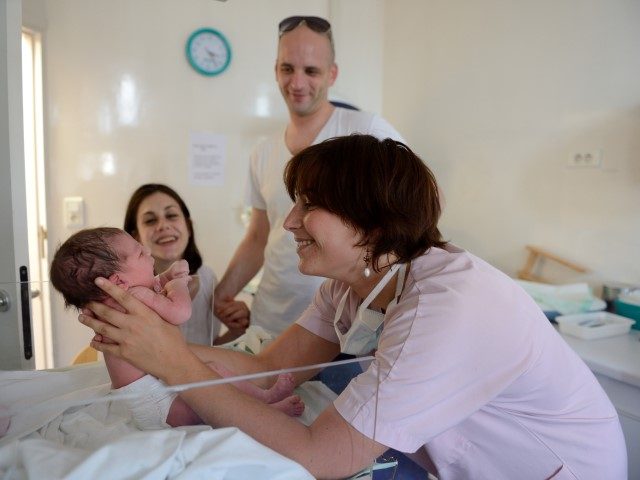Stanford University’s School of Medicine released the results of a study of 1.5 million pregnant women, including 2,572 lesbian couples, and found that “mother pairs” had more medical problems than “mixed-gender” couples — couples made up of a man and a woman.
The birth data also included “a tiny portion of fathers who gave birth. They were identified as presumably trans men who retained a uterus. No disparities emerged among those 498 fathers, whose births represented just 0.034 percent of the total studied,” the San Francisco Chronicle reported.
“The disparities faced by people who were mothers in partnership with a mother were striking,” Stephanie Leonard, a Stanford instructor and lead author of the study, which was published on Monday in the American Journal of Obstetrics and Gynecology, said.
The Chronicle reported on the complications lesbian couples experienced disproportionately, including:
- 8 percent of lesbian couples had multiple fetuses versus 1.5 percent male/female couples.
- 19 percent of lesbians required induced labor versus 13 percent of male/female couples.
- 8.6 percent of lesbian couples experienced hemorrhaging, or bleeding profusely, after giving birth, versus 4.4 percent of male/female couples.
The Chronicle report included speculation that the problems could be related to the stress of being a lesbian.
Dr. Juno Obedin-Maliver, the study’s senior author and an assistant professor of obstetrics and gynecology at Stanford Medicine, said that he believes the greater health problems in this group of mothers are a result of the negative effects of “stigma and discrimination” on health.
He cited “weddings, parenting magazines, and breast-feeding classes” as example of ways lesbian pairs may not feel represented, suggesting these are all designed with traditional couples in mind.
The report said that the disparity in outcomes could not be attributed to socioeconomic factors, and even after ruling out differences in education, insurance, age, pre-existing health conditions and other factors, the researchers found “mother/mother partners” had more complications than mother/father couples.
The Stanford study was made possible, researchers said, by a California law that altered birth certificates by no longer requiring “mother” and “father,” and switched to “parent giving birth” and “parent not giving birth.”
On the new state forms, each parent “can indicate whether they identify as a mother or father.”
Follow Penny Starr on Twitter

COMMENTS
Please let us know if you're having issues with commenting.